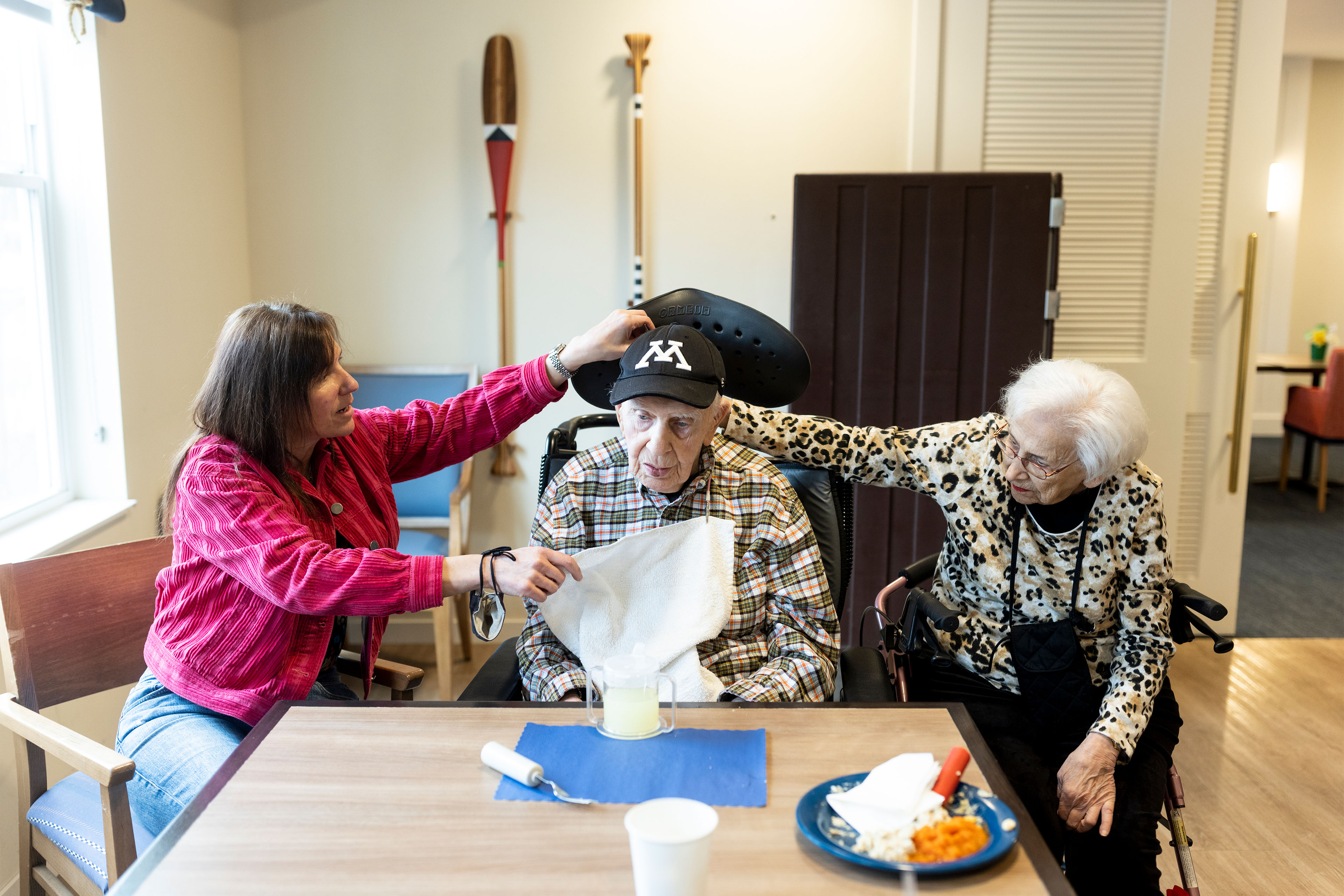Compare the best Assisted Living homes in your area today.
Compare the best Assisted Living homes in your area today.
Blog Article
The Duty of Assisted Living in Providing Specialized Treatment for Mental Deterioration Patients
The arrangement of specialized care for mental deterioration individuals within assisted living facilities is progressively recognized as a vital part of efficient dementia management. These settings are created to deal with the distinct cognitive and emotional obstacles dealt with by individuals with dementia, supplying customized support that advertises safety and security and wellness.
Understanding Mental Deterioration Care Demands
Comprehending the care requirements of people with dementia is essential for giving efficient assistance and improving their top quality of life. Mental deterioration is a modern neurological condition that impacts cognitive features such as memory, reasoning, and interaction. Individuals with mental deterioration frequently call for support with day-to-day tasks, customized treatment strategies, and emotional support.
Efficient dementia care includes identifying the unique difficulties encountered by each individual. This includes recognizing the stages of mental deterioration, which can vary from mild cognitive disability to innovative phases requiring extensive help. Treatment needs might incorporate support in taking care of everyday regimens, drug adherence, and maintaining social interactions to stop isolation.
In addition, sensory excitement and acquainted settings can considerably improve the wellness of people with mental deterioration. Caretakers have to be educated to recognize behavior adjustments and use strategies tailored to each person's choices and past experiences. Techniques such as recognition treatment and memory can aid connect properly and cultivate a sense of protection.
Inevitably, efficiently resolving the treatment demands of people with mental deterioration needs a caring technique, continuous training for caregivers, and a commitment to maintaining dignity and respect throughout the caregiving procedure.
Advantages of Assisted Living

Another considerable advantage is the risk-free and secure setting these centers provide. Citizens benefit from functions such as secured entryways and kept track of usual areas, reducing the danger of straying and enhancing total safety. Furthermore, assisted living advertises social interaction amongst locals, cultivating a feeling of community and belonging. Involving with peers can minimize sensations of isolation, which prevail in those dealing with mental deterioration.
In addition, many assisted living facilities provide support with everyday tasks, such as medicine monitoring, showering, and dish prep work. This support enables locals to preserve their self-reliance while ensuring their health and wellness and well-being are prioritized. Ultimately, assisted living serves as an important resource, balancing care and freedom for people with mental deterioration and their households.

Specialized Programs and Activities
(Charlotte Alzheimer's Care)Recognizing the unique needs of individuals with dementia, many assisted living facilities implement specialized programs and activities developed to enhance cognitive function and promote total well-being. These programs often consist of cognitive excitement tasks that involve citizens in memory games, challenges, and reminiscence treatment, which encourages the sharing of individual tales and past experiences.
Additionally, art and music treatment play considerable roles in cultivating imagination and emotional expression (Memory Care). Involving homeowners in painting, crafting, or songs sessions can supply therapeutic advantages, helping to lower stress and anxiety and boost mood. Physical tasks, such as gentle workouts and dance sessions, are additionally important, as they advertise wheelchair and physical health while motivating social communication among homeowners
Structured everyday regimens are typically developed to offer a feeling of security and predictability for individuals with dementia. These regimens can include scheduled dish times, team tasks, and personalized care plans that satisfy individual interests and abilities. By producing an enriching atmosphere full of customized activities, assisted living centers not just enhance the lifestyle for dementia clients however likewise promote a sense of community and belonging.
Trained Personnel and Assistance
(Charlotte Alzheimer's Care)In helped living facilities, the existence of qualified personnel is vital for offering reliable assistance to people with dementia. These professionals possess specialized knowledge and abilities to resolve the special requirements of residents, guaranteeing their safety, comfort, and well-being. Personnel get training in dementia treatment, which consists of recognizing the progression of the illness, identifying behavioral modifications, and employing reliable interaction approaches.
Furthermore, experienced staff are geared up to implement customized care strategies tailored to each citizen's preferences and capabilities. This personalized method cultivates a feeling of autonomy and dignity, allowing homeowners to take part in meaningful tasks that boost their lifestyle. The personnel likewise play an essential function in keeping track of health and health, quickly recognizing any kind of changes in condition that may need clinical focus.
In addition to guide care, experienced staff provide psychological assistance to residents, assisting to minimize sensations of confusion and stress and anxiety that usually go along with dementia. Their compassionate approach produces a caring atmosphere where residents feel valued and understood - Memory Care. Inevitably, the proficiency and devotion of trained personnel are crucial in delivering thorough treatment that satisfies the complex demands of individuals living with dementia in assisted living settings
Family Involvement and Resources
Family involvement plays a substantial duty in the care of individuals with dementia in assisted living facilities. Involving family participants in the care procedure not only enhances the emotional wellness of the resident however also fosters a collective atmosphere where care plans can be customized to individual demands. Family members can offer useful insights into the choices, background, and habits of their enjoyed ones, which can notify caretakers and result in more personalized treatment strategies.
Moreover, helped living facilities usually provide sources for link families, such as support system and academic workshops. These resources can aid families recognize dementia, enhance communication techniques, and create coping devices. Involvement in these programs can encourage family members, outfitting them with the devices needed to support their liked ones efficiently.
In addition, regular interaction between households and personnel is vital. This recurring discussion allows households to remain notified regarding their liked one's progress and any changes in treatment strategies. Ultimately, a strong partnership in between families and helped living facilities cultivates a setting of depend on and understanding, making certain that people with dementia obtain the specialized treatment they are worthy of while keeping their family connections.
Conclusion
In conclusion, assisted living centers play a vital function in addressing the special demands of dementia clients with individualized care and assistance. By fostering safe settings, promoting social communication, and carrying out organized routines, these facilities boost the total health of residents. The participation of experienced personnel and households further improves the treatment experience, making certain that specific preferences and histories are appreciated. Eventually, assisted living offers vital resources that significantly boost the lifestyle for those coping with mental deterioration.
Report this page